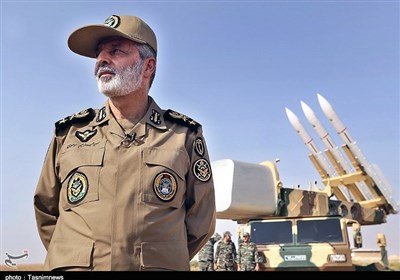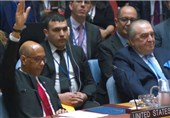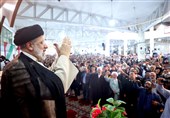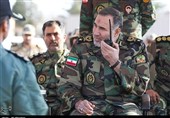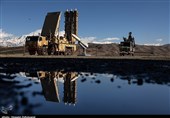American Prof. Questions Success of Possible US-North Korea Deal
TEHRAN (Tasnim) – An American political analyst and professor based in California cast doubts over the success of any possible deal between Washington and Pyongyang in possible talks next month, saying the US has proven not to be “an honest broker” by breaching its international obligations.
“The US has proven over the years that it is not an honest broker; Trump has further demonstrated that the US cannot be taken at its word,” Dennis Etler, a professor of Anthropology at Cabrillo College in Aptos, California, said in an interview with Tasnim News Agency.
“Thus, if a deal is brokered between Pyongyang and Washington, South Korea, China and Russia must be its guarantors,” the analyst said, adding, “Only a united front of the DPRK, ROK, China, and Russia in concert with the peace-loving nations of the world can ensure that the US will live up to its word.”
Following is the full text of the interview:
Tasnim: US President Donald Trump on Friday welcomed North Korea's statement that it was still willing to meet despite his cancellation of the summit. He called the North's reaction "warm and productive" and expressed hope for "long and enduring prosperity and peace." Trump tweeted Friday morning, a day after he withdrew from the June 12 summit. In a letter to North Korea Leader Kim Jong-un, Trump had blamed "tremendous anger and open hostility" by Pyongyang but held out hope that the meeting could happen. North Korea issued a statement Friday saying it is still "willing to give the US time and opportunities" to reconsider talks "at any time, at any format." Trump, during a Tuesday meeting with South Korea's President Moon Jae-in at the White House, had said there is a "very substantial chance" that the historic summit with the North Korean leader next month may not happen. However, it emerged Tuesday that the US government has already been minting commemorative coins to mark its planned summit in Singapore on June 12. What do you think about the developments? What is your prediction about the future of talks with the North Korean leader?
Etler: It is very hard to predict what Trump will do from one moment to the next. Some say this is part of his negotiating strategy to keep his opponents off-guard. More likely, it is a result of indecision and an inability to come to a consistent course of action. It was Trump and his people, Bolton and Pence, who used inflammatory rhetoric to threaten North Korea with “decimation” and Kim Jong-un with assassination if they did not do as they were told. The North Korean response was mild in comparison. The North Koreans and Kim Jong-un were handed a perfect hand to play, take the high road and make themselves out to be magnanimous, willing to let the outbursts on both sides to be set aside. Trump seemingly had no recourse but to backtrack and resume discussions for the summit. This shows the weakness of Trump’s position. His hand was forced and he must proceed with the summit if he is to retain any credibility. Thus, the bipartisan War Party both within his administration and in Congress have apparently lost a round, but they will be back to try and sabotage the peace process.
Tasnim: Russia's Foreign Ministry warned that Washington's recent threats to North Korea about facing a similar fate to that of Libya if Pyongyang refuses to abandon its nuclear program represent a risk to the entire region. The Russian Foreign Ministry's spokesperson Maria Zakharova said, “The fact is, when the US threatens North Korea, Pyongyang with a ‘Libyan scenario,' they threaten not only Pyongyang. They threaten everyone, the whole region." Earlier this week, US Vice-President Mike Pence insisted the North Korean crisis will "end like the Libyan model ended if Kim Jong-un doesn't make a deal" with the US. What is your take on the comments?
Etler: The aggressive rhetoric by Bolton, Pence, and Trump threatening the DPRK and Kim Jong-un with dire consequences if they do not accept the US position on denuclearization are hollow to the core. North Korea is not Libya. Both China and Russia border on the DPRK and have its back. China has a mutual defense treaty with the North, something that Libya, half a world away, never had. Kim’s recent visits to China and his meetings with President Xi Jinping have re-established warm, comradely relations between the two parties. Russia has demonstrated in Syria that it will not abandon its allies to the depredations of US Imperialism. The threats against the DPRK and Kim by Trump et al. are meaningless and falling on deaf ears.
Tasnim: As you know, Trump recently announced the US withdrawal from the 2015 nuclear deal between Iran and the Group 5+1 (Russia, China, US, Britain, France, and Germany). Prior to the move, the US had repeatedly violated the international pact known as the Joint Comprehensive Plan of Action (JCPOA) by imposing numerous sanctions against the Islamic Republic. Given Washington’s non-commitment to such an important international agreement, what would be a guarantee of success of US-North Korea talks?
Etler: The US has proven over the years that it is not an honest broker; Trump has further demonstrated that the US cannot be taken at its word. Thus, if a deal is brokered between Pyongyang and Washington, South Korea, China and Russia must be its guarantors. Only a united front of the DPRK, ROK, China, and Russia in concert with the peace-loving nations of the world can ensure that the US will live up to its word.


